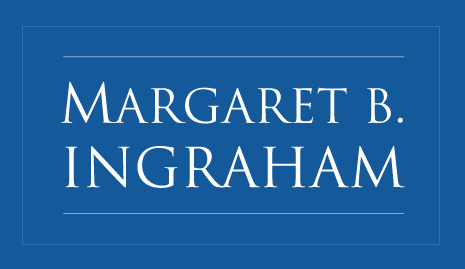What brought you to this land-locked place
of stones carved out rectangular
and set down hard against a ground
laced with thin coverlet of pine,
needles shining fine as amber
beneath a trace of late December frost?
What kept you here to watch
my annual return to this small lot
from which I’m hewn and still
the only place for me to move
alone through generations left to right—
husband, wife, father, mother—
toward the pause by which my single plight
will break not heart so much as perfect alternation?
Surely none of that escaped
the sliver pierce of your gold heron eye
and yet you were not moved at all
by that or bite of season or bitter wind
the cloudless azure southern sky belied.
From where you gravely stood on poker leg
you must have heard me speak their names,
and must have watched me clear the plot,
and take in hand a year’s full residue
of twigs and cones and fallen bark,
and sweep them off without my glove,
and press my palm against ancestral stones
to push away the cold that time insists
to leave and rocks agree to hold.
There you were solitary witness
to the solemn rite that I had thought
I was observing fully out of sight
of any other being, and yet seeing that
is what made you wait my notice
before you opened yourself up to flight,
unfolded the great span of your blue wings
that left shuddering in their wake
all bound and weighted things —
a marble angel tilted on headstone’s crown
and me, bent down whispering and chilled
and yearning to secure everything
our visitations bring and all we take
from such a strange winter meeting place.
PROPER WORDS FOR BIRDS
Volery is a word I’m sure
my mother never used,
may have never heard,
although she always pointed out
the birds in flight, the places
they would light, knew every one
by name, found such riotous delight
in the way the cedar waxwings lay
on the winter ground between
Grandpa’s house and ours, not dead
but drunk from stripping
the overripe fire orange berries
off the laden pyracanthas branches
she espaliered along our brick wall.
Never did she tell us, if she knew,
that the several mourning doves
my father loved above the other birds
were strictly speaking a piteousness
whenever they came together;
nor would she ever have let on
that the masks distinguishing
the tiny ruby-crowned kinglets
and black-capped chickadees
might have been the very thing
that caused the ornithologists
to look upon their congregations
with so earnest a distrust as to term
them all together a dissimulation.
Mother’s was a kind of understanding
that reached beyond the limits
of science and its strange taxonomy.
Mother always spoke to us
in other words about the birds:
“Listen,” “Hush,” “Come quickly
if you want to see the crazy nuthatch
creeping upside down again, there,
along the trunk of that maple tree.”
“Watch,” she would explain,
“when the hopping robin stops
and cocks her head toward the ground
it means she’s found a tunneling worm
by the sound only the birds can hear.”
So now when spring sends
migrating parcel after parcel
back from my native South,
reminiscence touches down in me
as a descent of flickers
to magnolia’s glossy leaves.
Teakettle chants of Carolina wren
open memory and Mother’s voice
floats back on each familiar note.
And I want to say in language
plain as I was taught,
“Mother, I have thought of you
when the redwings storm the marsh
and when the goldfinch sings.”
I imagine she would answer me,
“I know you have and that you learned
without so many words
to apprehend the charm
of hummingbirds.”
